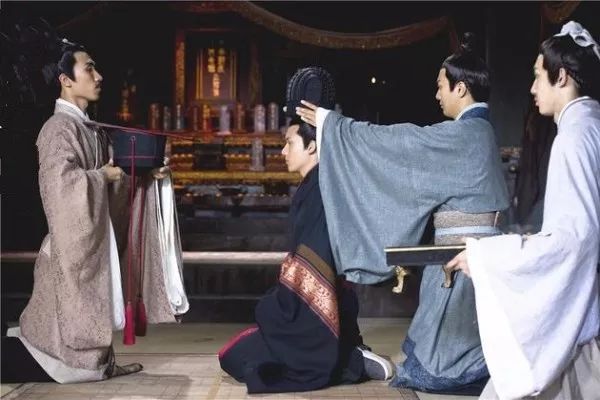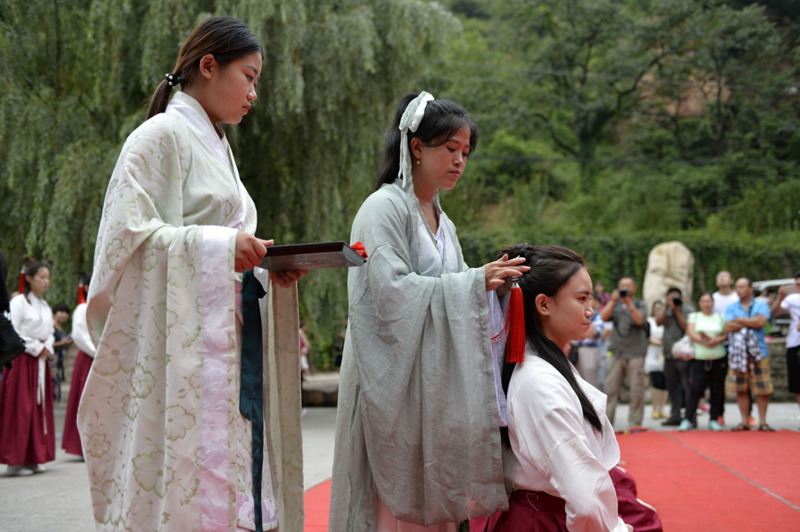2. Coming-of-age Customs
Coming-of-age ceremony signifies the transition from childhood to adolescence or adulthood. The “Guanli”(冠礼) and “Jili”(笄礼) are traditional coming-of-age ceremonies for young men and women of the ancient Han Chinese, marking their maturity, eligibility for marriage, and entry into clan activities. Contemporary rites of passage include the government-initiated “18-year-old adult ceremony education” as the mainstream.
Guanli (冠礼): The “Guanli” for young men originated in the Zhou Dynasty (1029 BC – 771 BC), performed at the age of twenty in ancestral temples in February. It allowed men to wear hats and arrange their hair after the ceremony.
Jili (笄礼): The “Jili” refers to the ceremony for young women when they reached fifteen years old during the Zhou Dynasty. Their hair was braided and adorned with hairpins, symbolizing adulthood and betrothal. After the ceremony, noblewomen typically received further education in etiquette and household skills, including virtues such as “fude 妇德” (virtue), “furong 妇容” (appearance), “fugong 妇工” (accomplishment), and “fuyan 妇颜” (speech), necessary for their roles as wives and daughters-in-law.
Please watch the video which introduced the coming-of-age ceremonies in China.
In China, different regions have their unique ceremonies and rituals. This video introduces the traditions of coming-of-age ceremonies in southern Fujian province.
Chinese minorities also have their own coming-of-age ceremonies, which differ from those of the Han people. These ceremonies vary widely among different minority groups, each with its own unique traditions and age markers for recognizing the transition from childhood to adulthood. Please watch the video of Tibetan’ coming-of-age ceremony.
This video showcases the folk song for the coming-of-age ceremony of the Qiang minority, who are mainly living in Sichuan province in China. There are English subtitles.
Let’s have fun by watching this “coming of age” ceremony for giant pandas. They are very cute , right?



